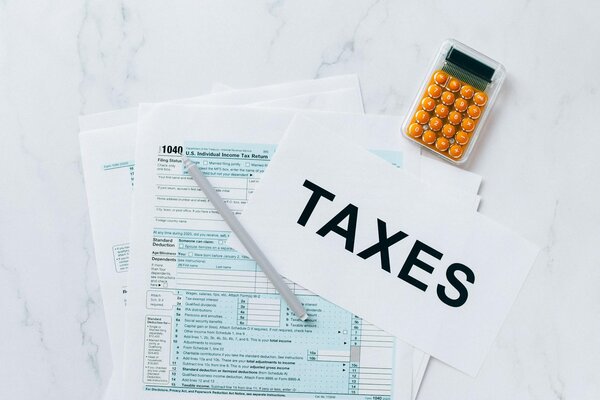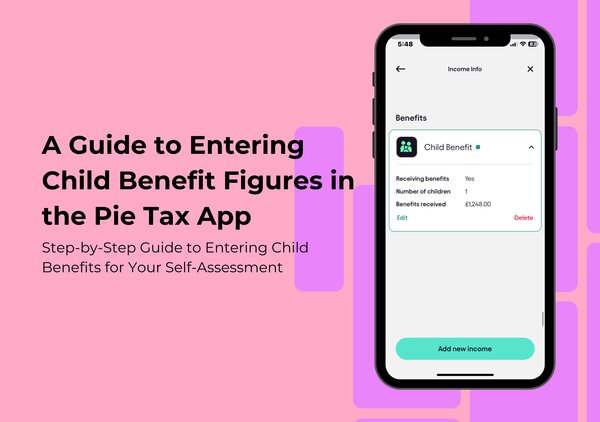Let’s Break This Down Together…
Thinking of booking a business training course but unsure if you can claim tax back? You’re not alone, lots of people wonder whether HMRC will let them deduct those costs.
This article explains who can claim tax relief on training, what types of courses qualify, and how to avoid common mistakes. We’ll cover self-employed rules, limited company benefits, and what employees need to know.
By the end, you’ll know how to save money and keep HMRC happy. Let’s dive in and see if your training costs could shrink your next tax bill!
What Training Costs Qualify for Tax Relief?
Not all training qualifies for tax relief. HMRC has specific rules about which courses are eligible. A training activity can include a variety of formats such as formal classroom-based methods, informal teach-ins, online or distance learning, online courses, and self-tuition packages.
The training must be work-related and relevant to your current profession. This means it should maintain or update existing skills—focusing on the individual's existing skills rather than acquiring entirely new skills and knowledge, as updating existing skills is generally favored for tax purposes.
The course must have a clear business purpose, not just personal interest. The training must also be closely relevant to the trade carried or related employment, and for employees, it should relate to the employee's current employment.
Different rules apply depending on your employment status. The deductible training cost includes not only course fees but also related training materials, and these are considered a revenue expense or revenue expenditure for tax purposes.
Only employment-related expenses that are costs incurred wholly and exclusively for the purposes of the business are eligible for a tax deduction under current tax legislation.
Can I Claim Tax Back on Business Training Courses as a Self-Employed Person?
Yes, self-employed individuals, including self-employed sole traders and employed sole traders, can claim training costs as business expenses through self-assessment, provided they meet certain conditions.
The training must be “wholly and exclusively” for business purposes. It must relate to your existing trade and existing business, not preparing for a new business. Training costs for a new business are generally considered capital expenditure and are not deductible.
You can include course fees, related travel, accommodation, and materials. These are allowable expenses that the business owner incurs wholly and exclusively for business purposes. Keep all receipts and payment evidence for at least six years in case HMRC asks questions.
The tax relief comes by reducing your taxable profit, effectively saving you tax at your highest rate. Last year, I saved nearly £800 by claiming a digital marketing course that helped me attract new clients. Training to maintain or improve your professional expertise or leadership skills is generally allowable if it is directly related to your trade.

Limited Company Training Tax Relief
If you operate through a limited company, the tax treatment is quite favourable.
Your company can pay for your training (as director) and claim 100% of the cost against corporation tax, providing corporation tax relief, as these costs are generally considered revenue expenditure when they relate to updating existing skills.
The company can also cover associated costs like travel and accommodation. Training can be included as part of an employee's remuneration package and as part of a fair programme for staff development, ensuring an equitable and mutually agreed approach to upskilling.
This makes limited companies particularly tax-efficient for professional development. Investing in training supports staff development and can be structured as part of a fair and mutually agreed training plan.
Employee Training Tax Claims
As an employee, claiming tax relief on training is more restricted. Only employment-related expenses that are incurred wholly, exclusively, and necessarily for your employee's current employment or a related employment are eligible.
You can only claim if your employer hasn’t already paid or reimbursed the cost. The training must be necessary for your current role, and it must be closely related to your employee's current employment or a related employment, not for career advancement.
Claims under £2,500 can be made via form P87; larger claims require self-assessment. Work-related training provided by an employer does not usually result in a taxable benefit or taxable benefit in kind and does not require the employee to pay PAYE tax. Relief is given at your tax rate (20%, 40%, or 45%), not the full cost.
You have four years from the end of the tax year to make a claim. Training provided to a family member who is an employee, or training that enables voluntary activities arising from employment, must still meet the business relevance criteria to qualify for tax relief..

Additional Training Expenses You Can Claim
Beyond the course fees, you might be able to claim tax relief on other expenses. A deductible training cost includes not only the course fees but also related training materials, travel, and subsistence costs. These are considered an allowable expense and form part of your overall business costs.
Travel costs to and from the training venue, including mileage or public transport fares. Overnight accommodation if the training requires staying away from home.
Books, materials, and equipment needed specifically for the course can also be included as related training materials. These expenses support knowledge, skills, or personal development, and training can enhance personal qualities or skills or personal qualities relevant to your business.
Professional membership fees if they’re required for the training.
Subsistence costs (meals) while attending training, though these are subject to stricter rules. Each expense must be reasonable and directly related to the training.
Training that supports personal growth or enables participation in charitable or voluntary activities related to your business may also qualify for tax relief.
Tax Implications and Considerations
When planning to invest in training courses, it’s important to understand the tax implications and ensure you’re eligible to claim tax relief. For training costs to be tax deductible, they must be incurred wholly and exclusively for the purposes of your business.
This means the training should be directly related to improving the skills and knowledge needed for your current or future business activities. Work-related training that enhances your team’s expertise or your own development can qualify, provided it’s not for a completely new trade.
In addition to course fees, travel and subsistence costs such as transport and meals while attending training may also be claimed as allowable business expenses. By carefully tracking these costs and ensuring they meet HMRC’s criteria, you can reduce your corporation tax liability.
Always make sure every expense is exclusively for your business. That way, you maximise your tax deductions and keep your business finances in top shape.
Common Mistakes to Avoid
When claiming tax relief on training, watch out for these common pitfalls.
Claiming for courses that help you start a completely new profession. Missing the four-year deadline for making retrospective claims.
Not keeping proper records of expenses and their business relevance. Claiming for personal interest courses without clear business benefits.
Overlooking professional subscriptions which might qualify separately.

Final Thoughts
Tax relief on business training courses can significantly reduce your tax bill when done correctly.
Always ensure your training is relevant to your current business or employment to meet HMRC requirements.
Keep detailed records of all training expenses, including receipts and notes on business relevance.
When in doubt, consult with a tax professional to ensure you're claiming everything you're entitled to.
Pie: Simplifying Business Training Courses UK Tax
Claiming tax back on business training doesn't have to be complicated. The UK's first personal tax app makes tracking and claiming training expenses straightforward.
We provide clear guidance on which training expenses qualify for tax relief based on your specific profession.
The app automatically calculates your potential tax savings as you add expenses, showing you exactly how much you could claim back.
Curious to see how it works? Explore the Pie app today to take the headache out of training expense claims.
Quick and Easy Guide to Add Self Employed Expenses
Follow these steps to add self emploment expenses
Swipe right on any eligible transaction to add it as an expense you want to declare on your tax return, moving it to the ‘expense’ tab.Step 1

Use the ‘Quick Add’ feature to manually enter any additional expenses not found in your bank transactions for your self-assessment.Step 2













